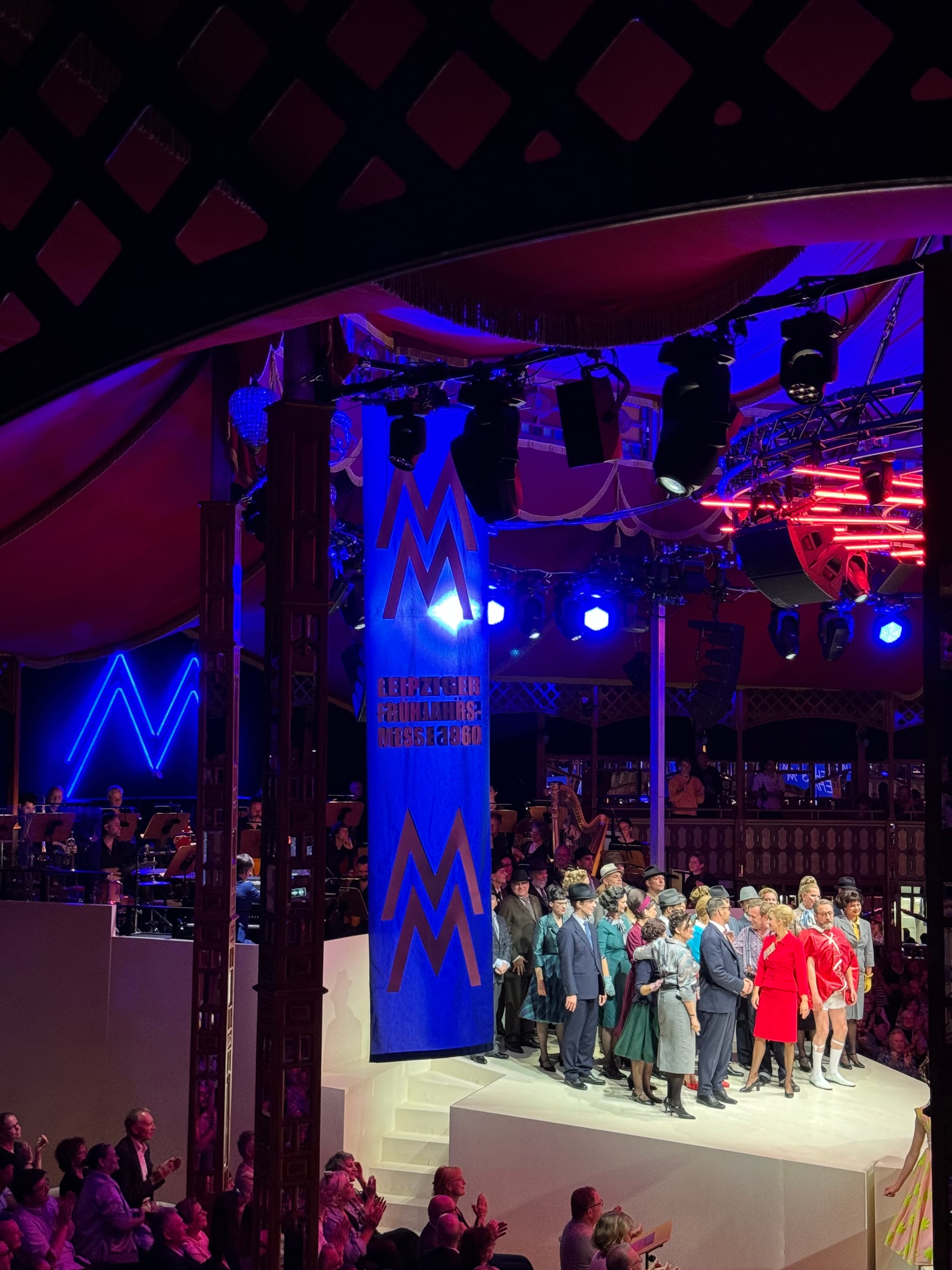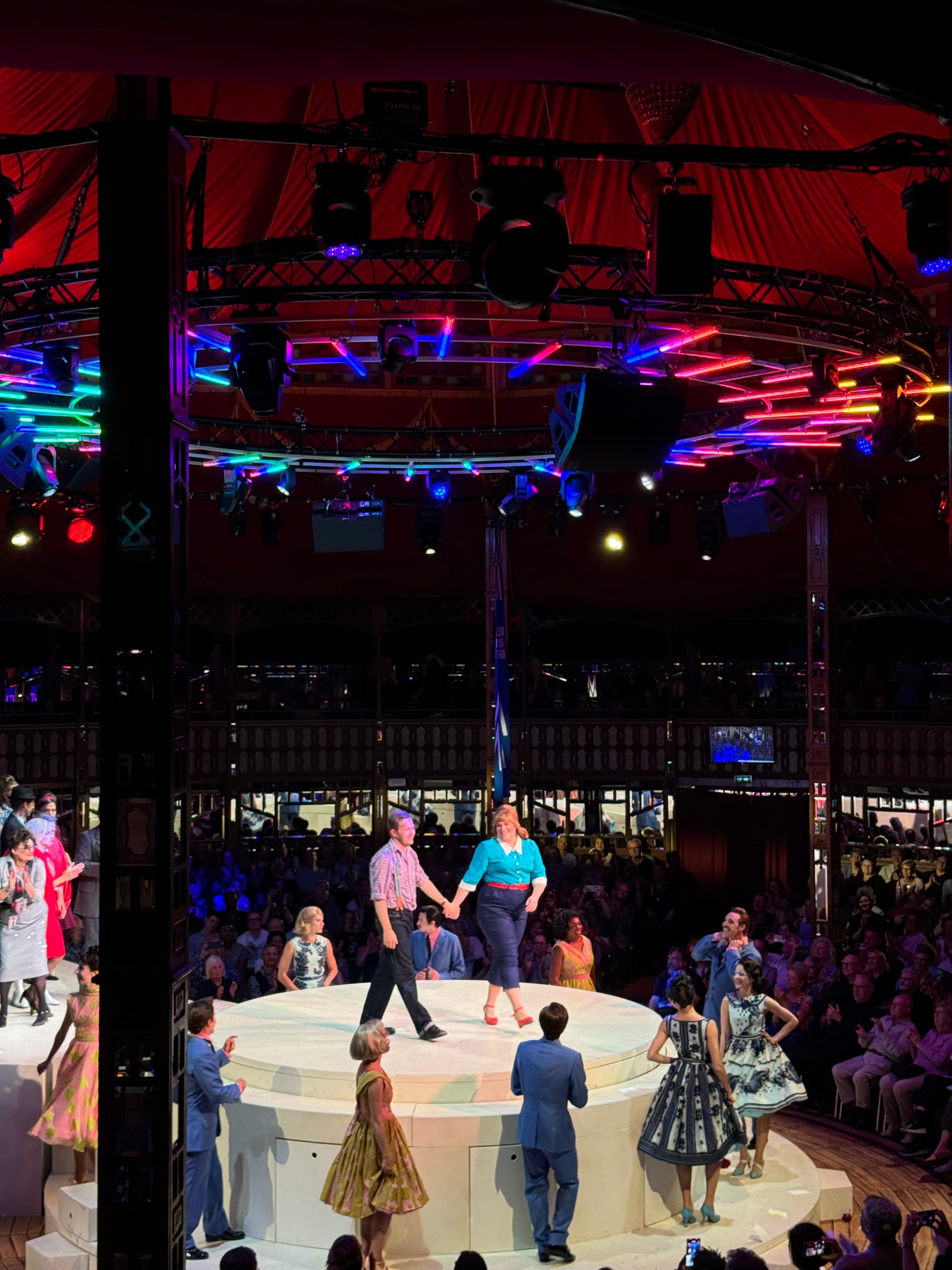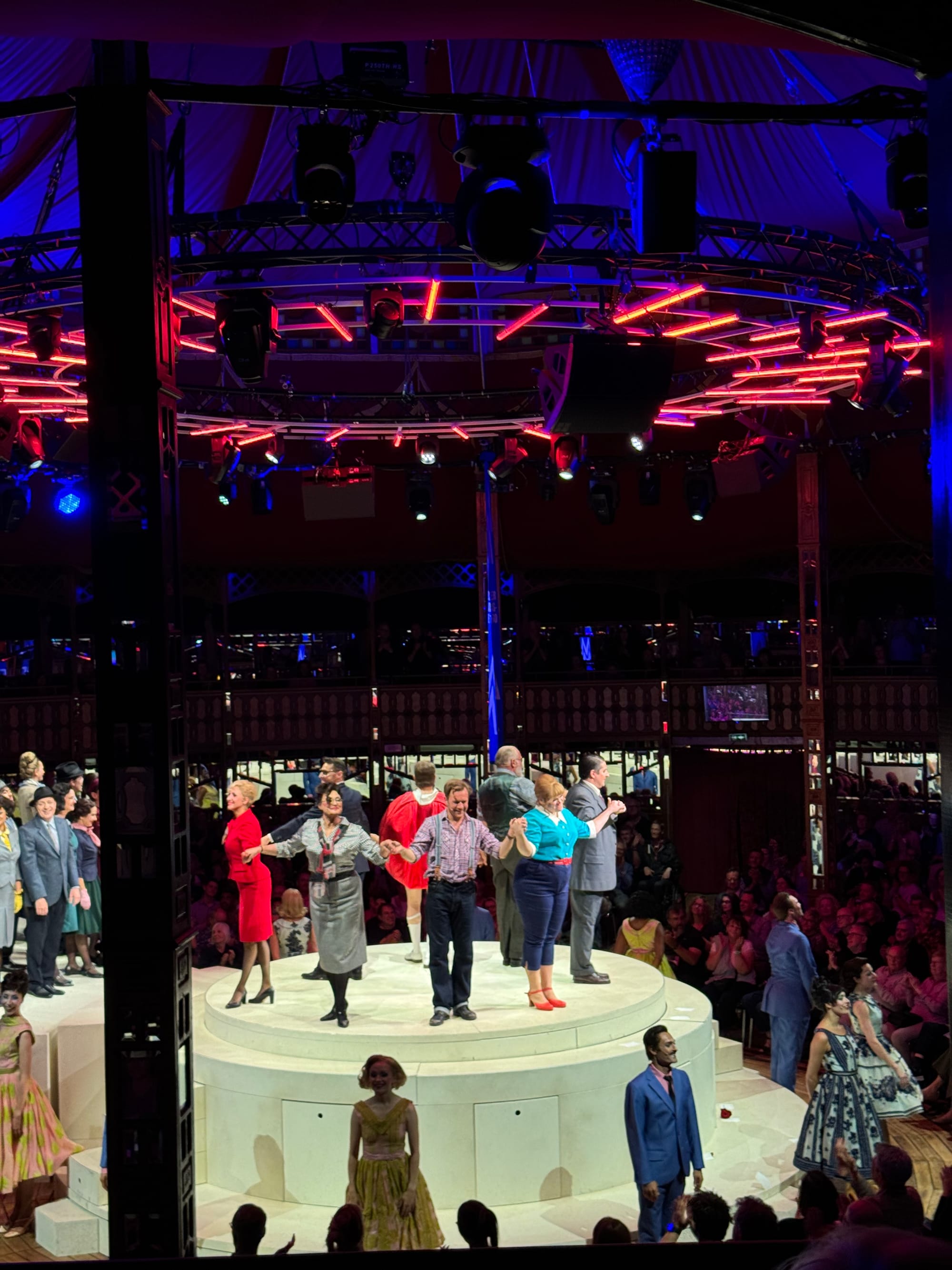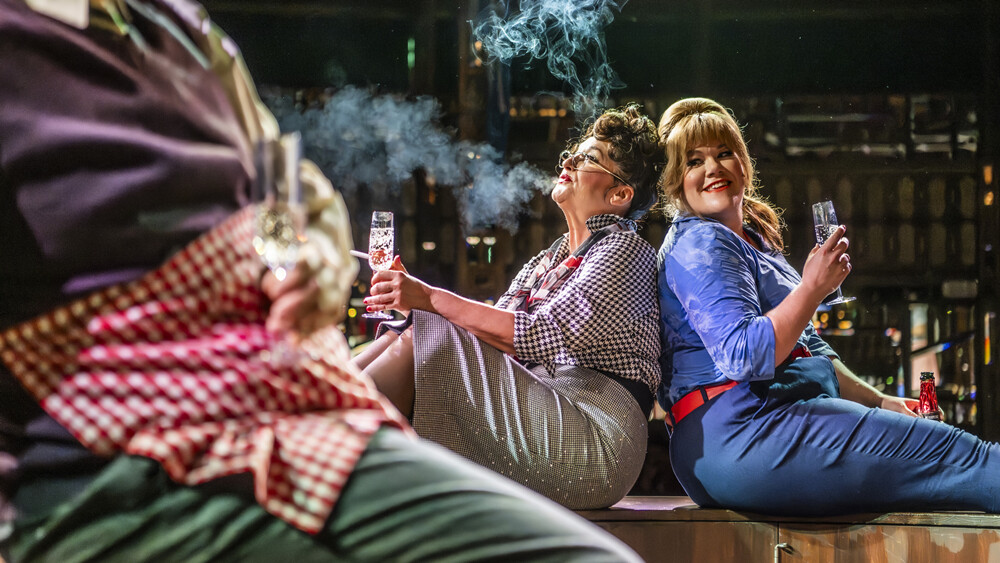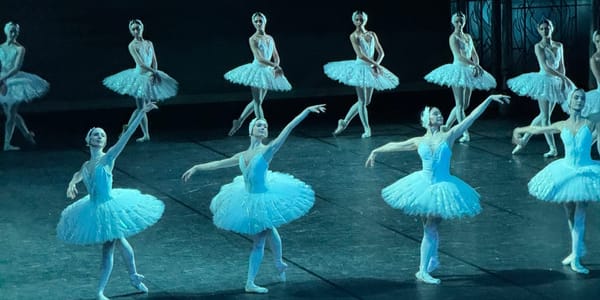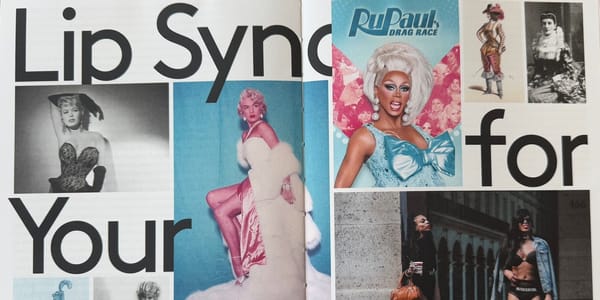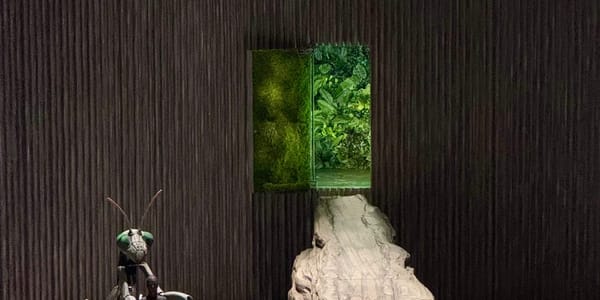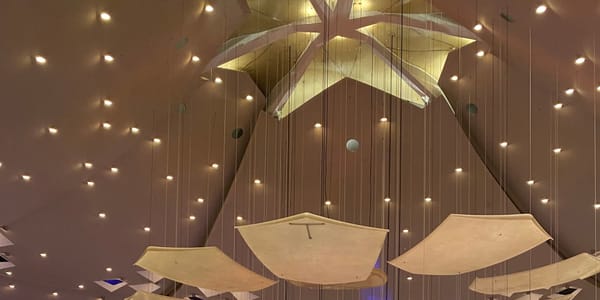Messeschlager Gisela at Komische Oper Berlin
It was evident from their reactions that many of the contemporary references to GDR society were a hit with members of the audience that might’ve grown up in East Germany or had personal, emotional ties with.
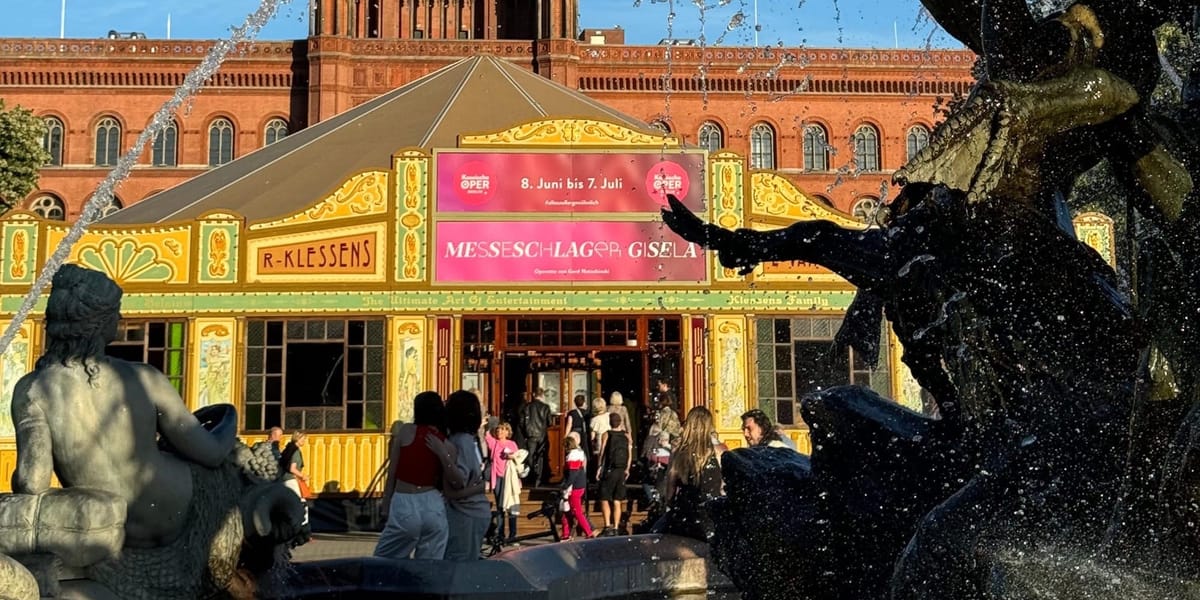
⭐️⭐️⭐️⭐️
🎭 Messeschlager Gisela
🎶 Gerd Natschinski
🏛️ Komische Oper Berlin
🗓️ 07.07.2024
I’d be lying if I didn’t admit that I’ve had the grand finale of Messeschlager Gisela (MSG) stuck in my head ever since seeing it at the end of July. There’s lots to say about this operetta, first performed in 1960 in East Berlin and now performed by Komische Oper Berlin in a circus-like tent constructed specifically for this show right in front of the Red City Hall, at the epicenter of former socialist Berlin.
There are many layers to this “jovial/light-hearted musical theatre” (“heiteres Musiktheater) which prove a goldmine for sociological analysis. Intended to form a new genre of musical distinct from the pre-war “bourgeois operetta”, hundreds of pieces were produced not just for purposes of entertainment, but also to promote socialist values and ideals of a modern GDR society.
It was evident from their reactions that many of the contemporary references to GDR society were a hit with members of the audience that might’ve grown up in East Germany or had personal, emotional ties with: there seemed to have been quite a few inside jokes and GDR references that were relatable to these members of the audience, resulting in chuckles and laughter.
For someone who never experienced a divided Germany, MSG offers a glimpse into the everyday lives of the average worker in early 1960s East Berlin, still ringing of post-war optimism in a time in which the wall was not yet built, and semi-free movement was still possible in a divided Berlin. In fact, the plot references places in West Berlin like the KaDeWe department store—references which had to be removed after the wall was built to fix new plot holes.
The plot itself revolves around a worker’s collective for fashion which is preparing a new collection for an upcoming trade fair. The main conflict: will the self-centered boss display his ridiculous, West-inspired space-age costumes (the main piece being a very large and round melon dress), or will Gisela succeed in cobbling together a practical capsule-collection-esque pièce de résistance “for every-day working class women, by every-day working class women”?
Of course, to a choral fanfare of “the new fashion of Berlin”, Gisela’s eponymous dress is a hit, and orders from all over the Ostblock pour in. Turns out that in the GDR economy, we center the needs of our workers and make solid products that will meet them! In a way, MSG is a story about class consciousness, gender equality, and, in this modern adaption, also queer acceptance: the character of Inge is turned into a guy and allowed to experience gay romance.
While MSG definitely gave me socialist Hairspray vibes, it was ultimately a reminder that the German musical theatre repertoire is incredibly rich and diverse. MSG is just a glimpse into this vast catalogue, much of which is from a time that is much more present in the minds of German audiences (when compared to more traditional opera), and therefore much more intimately relatable, full of recent pop cultural references specific to the lived experiences of people living in Germany. Here‘s hoping that more of this catalogue will be revealed to us in the future!
